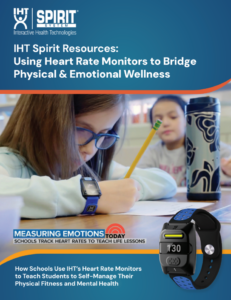With its Board of Education focusing on Social-Emotional Learning, SEL, across the Commonwealth, Massachusetts physical education teachers now have a way to quantify how students master those essential skills.
IHT and the Massachusetts Association of Health, Physical Education, Recreation and Dance (MAHPERD) have integrated SEL protocols into IHT’s Spirit Assessment Measures software. Teachers at 79 participating schools can now assess how students master SEL skills and report the results of those assessments to state leaders, including MAHPERD Executive Director Maria Melchionda.
“We are measuring not only PE Metrics, which focus on assessing the psychomotor (skills), but also the social-emotional learning at each level as part of our data collection,” she said.
Teachers began collecting data in 2016 as MAHPERD launched a pilot program to use data to assess student skill development in physical education. Following a meeting that Melchionda and MAHPERD Board President Claudia Brown, who also teaches and coordinates the Physical Education and Wellness Curriculum for the North Reading Public Schools, had with the Massachusetts Board of Education last Fall, the pilot expanded to include SEL, one of the board’s top educational priorities.
Perfect timing
“This is a perfect time to just give them what they want,” Melchionda said of the board’s desire to study SEL. “We’re already doing it. It’s going to be very easy for us to institute within our data collection.
“I told the board, ‘As long as I’ve been in education, and that’s about 35 years, we’ve always done SEL in physical education and health,’” she continued. “’In fact, I don’t know of a teacher out there in the classroom or in these two disciplines who hasn’t done SEL. It’s ingrained in (the way we teach).’”
As MAHPERD prepared to enter the second year of its relationship with IHT, a relationship that provides members IHT’s educational assessment software and heart rate monitors, Melchionda and Brown made sure to include SEL lessons and assessments inside a framework that already tracks physical education-specific skills and proficiencies. MAHPERD’s statewide data collection effort hopes to further document the correlation between active, fit students and success in the academic classroom.
Assessing SEL
Along with IHT’s team that included President Jen Ohlson and Director of Customer Success Bev Brown, Melchionda, Claudia Brown and MAHPERD’s Executive Committee developed a framework that allows teachers to assess students across SEL skills tied to national guidelines for each grade level. Participating MAHPERD teachers can track student progress on the five core principles of SEL:
- Self-management
- Skills include managing stress, maintaining self-control and setting personal goals
- Relationship skills
- Skills include communicating clearly and practicing positive interpersonal skills
- Social awareness
- Skills include concern and support for others and accepting differences in others’ skills
- Responsible decision-making
- Skills include making good decisions
- Self-awareness
- Skills include creating success within the physical education classroom
Within IHT’s Spirit Assessment Measures software, teachers can find lessons designed around grade-specific national physical education standards and track how students improve their proficiencies in each.
The relationship between physical education and academic readiness remains central to MAHPERD’s data collection initiative. MAHPERD’s goal is to provide the state objective, longitudinal evidence that physical education is every bit as academic as the traditionally recognized core classes.
Educating the whole child
“Physical education is academics,” Melchionda said. “You learn about physical literacy. The brain-based research is out there. Physical education enhances academics and now according to Every Student Succeeds Act (ESSA), we have health and physical education as part of the 18 well-rounded subjects which is a plus for every student in this nation.”
By the end of the school year, Melchionda plans to return to the state board of education with data showing how Massachusetts’ students are progressing in mastering SEL’s skills. With IHT’s Spirit System, MAHPERD has developed a data collection and evaluation instrument that delivers comprehensive reports on key assessments. Melchionda’s next report to the state board will include tangible evidence detailing the importance of physical education — and SEL delivered through physical education — as part of the whole child approach to education.
“As a state, Massachusetts is really beginning to recognize the importance of the whole child approach, but we’re still at the forefront of what is possible and where we need to be in empowering our children to take ownership of their health and well-being for life, and in all aspects of their life, physically, mentally, socially and emotionally.” she said. “I want my two children to be healthy and fit every single day of their lives. When they are, they can learn better as those neurons start firing off. You’re helping produce parts of the brain that are going to help them process better which is why physical education is a central part of the solution.”
By providing data that proves physical education’s ability to improve student SEL engagement, MAHPERD hopes the state will direct more resources toward enhancing PE as an essential subject.
“The key is the comprehensive data we’re currently collecting,” Melchionda concluded. “The data not only connects with every student and their parents to help them reach their full potential, but individual teachers, schools and districts now have a viable way to help meet state accountability mandates. Plus, it provides the Department of Education with a clearinghouse of aggregated connected data that unifies their overall goals. It’s powerful.”


